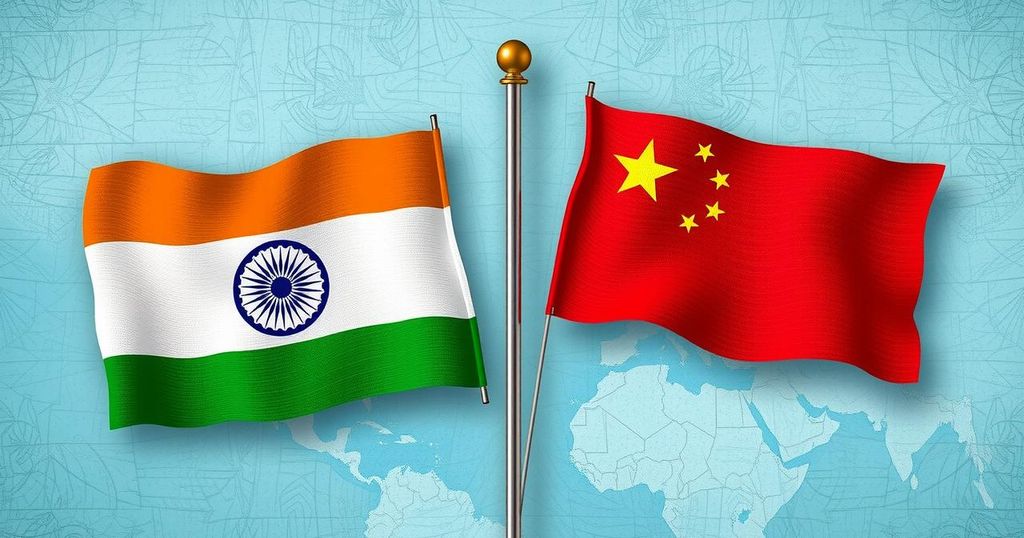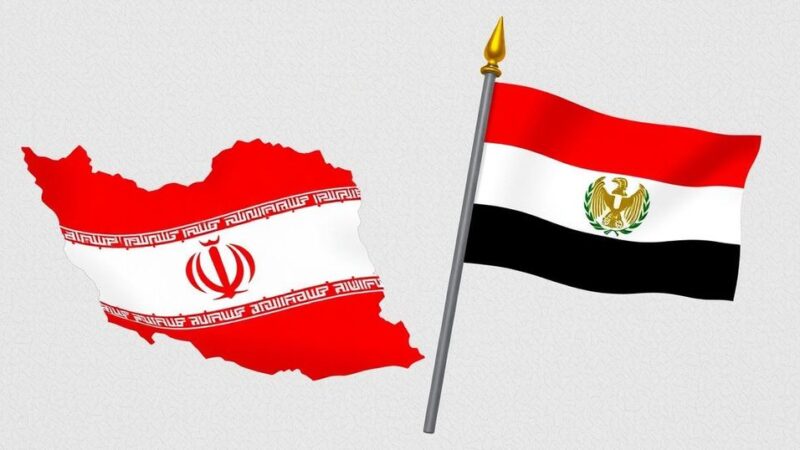India has reaffirmed its commitment to work with China on fostering cross-border cooperation following meetings between their Special Representatives. The discussions centered around enhancing trade, re-establishing the Kailash Mansarovar Yatra, and addressing the overall border situation after recent disengagement agreements. While both parties have expressed positive directions, nuances in their statements indicate ongoing complexities in reaching a unified consensus on key issues.
India has expressed its readiness to engage with China regarding steps to advance the understanding achieved between their Special Representatives on cross-border cooperation. This announcement follows a meeting in Beijing between India’s National Security Adviser Ajit Doval and China’s Foreign Minister Wang Yi, marking their first official dialogue in nearly five years. The discussions are intended to facilitate cooperation in areas such as the Kailash Mansarovar Yatra and cross-border trade, building upon the disengagement agreement reached on October 21 relative to the Line of Actual Control (LAC) in the Ladakh sector.
Details from the talks indicate that both parties explored avenues for resuming the Kailash Mansarovar Yatra, which has been suspended since 2020 due to military tensions sparked by troop movements in Ladakh. Following consultations among high-level officials, India and China aim to normalize diplomatic relations and address the longstanding border dispute with a focus on peaceful border management. Notably, while both nations discuss trade enhancements, specific mutual agreements remain unconfirmed, suggesting some disagreement on the implications of these dialogues.
As dialogue continues, spokesperson Randhir Jaiswal indicated that discussions are leaning positively, citing the mutual commitment to developing a fair boundary framework as delineated in earlier agreements. Although China’s foreign ministry highlighted a potential consensus from the recent talks, India’s readout did not explicitly confirm this, reflecting nuanced diplomatic communications. Furthermore, previous military engagements, especially the Galwan Valley clash, significantly impacted relations, underscoring the importance of these negotiations to restore stability in the region.
The recent discussions between India and China follow years of strained relations, particularly after the 2020 military confrontation in Galwan Valley which resulted in fatalities on both sides and heightened tensions along their shared border. The meetings under the new political context aim to rebuild trust and implement steps for peaceful coexistence, especially regarding the Kailash Mansarovar pilgrimage routes that were severely disrupted. Underlying these dialogues are longstanding territorial disputes that have historically complicated bilateral relations, necessitating careful diplomatic efforts to achieve progress. The October 2023 disengagement agreement represents a significant milestone, with both nations working toward reducing military presence along contentious areas and seeking collaborative frameworks for greater connectivity and trade. The recent talks reflect ongoing efforts to stabilize bilateral relations following earlier confrontations and pursue substantive diplomatic engagements.
In conclusion, India’s commitment to undertake further discussions with China highlights the ongoing efforts to enhance cross-border cooperation, notably in regard to the Kailash Mansarovar Yatra and border trade. While progress has been made since the disengagement agreement of October 2023, the nuances of the recent dialogues, including the distinction in perspectives on consensus, suggest a cautious yet hopeful pathway forward. The emphasis on peaceful border management and normalized relations underscores the importance of continued engagement between both nations to rectify past tensions and foster future collaboration.
Original Source: www.hindustantimes.com







